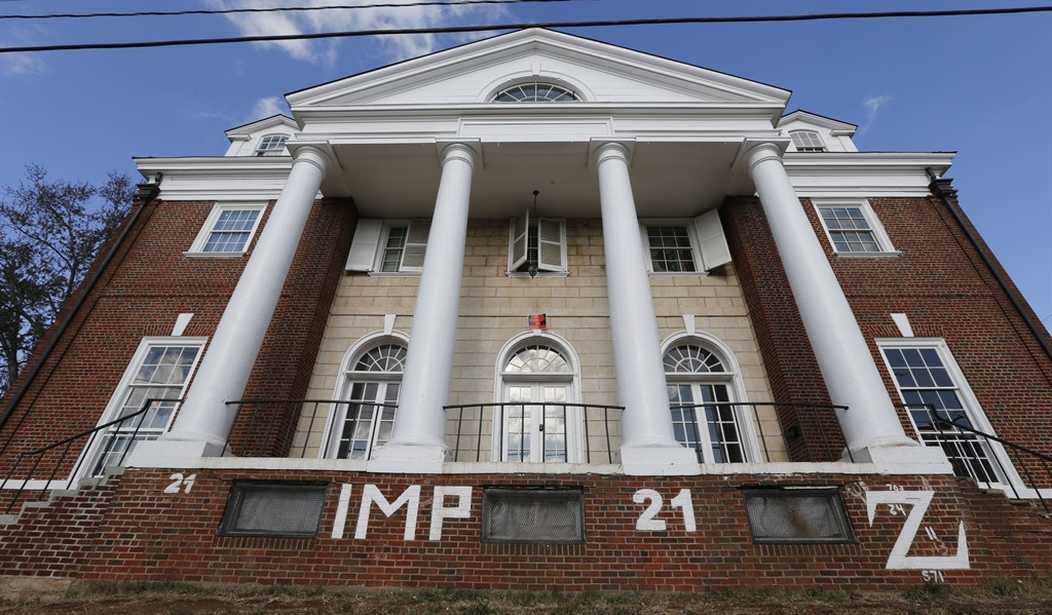Rolling Stone magazine is having a tough week. Sunday the magazine’s owners announced it was being put up for sale. Today an Appeals Court revived a lawsuit stemming from the discredited gang rape story the magazine published in 2014.
The central question in the case was whether people reading the Rolling Stone article would be able to identify three specific fraternity brothers who were described but not named in the piece. Last June, U.S. District Judge Kevin Castel said the answer to that question was no and dismissed the case. Now the Second Circuit Court of Appeals has partly reversed the decision. From the NY Times:
On Tuesday, the United States Court of Appeals for the Second Circuit in Manhattan ruled that a lower court had erred in dismissing a defamation lawsuit filed by three former members of the fraternity at the center of the 2014 article. In the earlier decision, a judge ruled that the three men — George Elias IV, Ross Fowler and Stephen Hadford — had not shown that the article was “of and concerning” them personally, apart from the fraternity…
But in their decision, a panel of appellate judges wrote that “while it is a close call,” the district judge was incorrect when it came to two of the men, Mr. Elias and Mr. Fowler, and sent the case back to the district court for further proceedings.
Reuters says the decision has two parts. First, the Appeals Court said all three men could pursue a lawsuit under a small group theory of defamation, i.e. there were only 53 frat members and they were easily identified. Second, the court said both Elias and Fowler could pursue individual defamation cases because there was enough information in the story that they could conceivably have been identified by some readers. The Hollywood Reporter explains the specific details that pointed to Elias and Fowler:
As far as Elias, he alleged to have been identified in the story because he was a fraternity member on the night in question and was known to live on the second floor where the rape was reported to have occurred. His claims were initially dismissed upon the observation that the article contained no details about the bedroom, but his suggestion of having the only bedroom at the fraternity house large enough to fit the description of the rape is deemed by the appeals court as being enough at this stage.
Fowler gets the benefit of the doubt on his claims because of two main allegations. One, that he was the rush chair for the fraternity. And two, that he regularly swam at the university’s aquatic center. The article decribes how Jackie met one of the fraternity brothers at a pool and suggested that the rape was related to the fraternity’s initiation process.
The third individual, Stephen Hadford, claimed he was identified because the story mentioned a frat brother who rode his bike across campus. The Appeals Court said that information was not specific enough to support his individual claim.
Rolling Stone has already paid a $3 million judgment to a UVA Dean last year and settled another case with the fraternity mentioned in the story for $1.65 million. This revival of the lawsuit won’t help the sale price for the controlling share of the magazine.








Join the conversation as a VIP Member